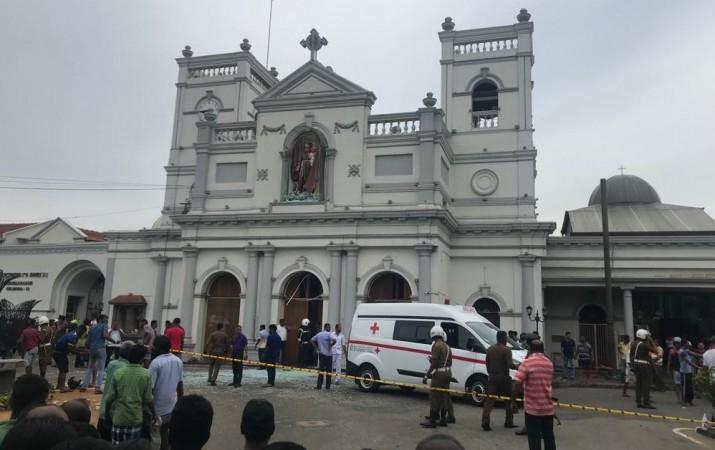
Indian intelligence agencies had reportedly warned Sri Lanka about suicide bombings at least 10 days before the eight bombings that rocked the island nation on Easter Sunday. It is being reported that the intelligence input had highlighted possibilities of attacks at the Indian High Commission in Colombo and churches in the country.
Based on India's inputs, Sri Lankan police had sent out an alert saying that based on a foreign intelligence input, a radical Islamist group National Thowheeth Jama'ath (NTJ) may carry out various attacks in the country, Indian Express reported.
The alert by Sri Lankan police was issued on April 11 by Deputy Inspector General of Police Priyalal Dissanayake. It was addressed to several security divisions, asking for heightened security of VIPs and senior government officials, Economy Next reported.
However, since Sri Lanka had a peaceful history for a decade now after the crushing of Tamil militant group LTTE, there was no follow up on the alert especially when the country was celebrating the onset of Tamilian New Year since April 12.
Sri Lanka's celebrations came to a shocking halt when eight bombings rocked some churches and hotels in the country killing 290 people and wounding 450 more.
The Sri Lankan police have arrested 13 people said to be involved in the serial blasts. One of the accused, who had gone missing from his house six months ago, was arrested from Cinnamon Grand Hotel - one the targetted hotels.
Why didn't Sri Lanka act on the intelligence input?
Seemingly, the single largest terror threat for Sri Lanka in the form of LTTE seemed to be fast disappearing after their crushing military defeat in 2009. Sri Lanka had, therefore, softened its anti-terror laws and there was no major terror incident reported in the country for over a decade.
The Easter Sunday bombings not only shook Sri Lanka but the entire world. The bombings on churches where Christians had gathered to celebrate Easter and five-star hotels bear a striking resemblance to ISIS-style bombings across the world.
The LTTE, on the other hand, had mostly refrained from attacking the Christian community which constitutes nearly seven per cent of the Sri Lankan population. In fact, in LTTE dominated places, the Christians and Tamils have lived together for years with no possible danger.


















